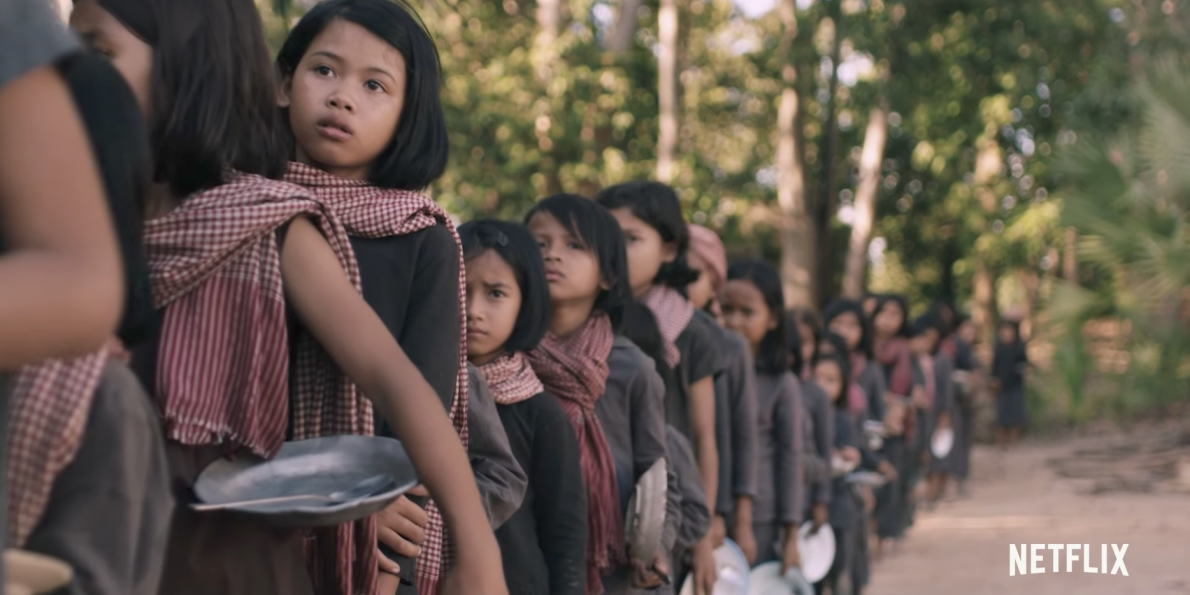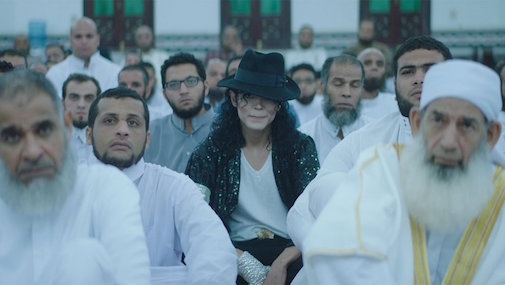 There’s niche-marketing, and then there’s micro-targeting, and then there’s saying to your friend Nathaniel, “I hope you’ll still keep an eye out for Shahrbanoo Sadat’s Wolf and Sheep, even though Afghanistan didn’t select it as their Oscar submission.” We really do live in a weird bubble, but that is why one is grateful for The Film Experience, where folks are all the same kind of different as you. And as we all know, this site has been a longtime devotee of the Best Foreign Language Film Oscar in all stages of curation and competition. So, seizing the opportunity of a sympathetic audience, and amidst a season where many of the 84 movies put forward by their home countries as Academy Award contenders are floating around at festivals—big and small, rural and urban, American and elsewhere—I thought I’d weigh in on the titles I’ve caught.
There’s niche-marketing, and then there’s micro-targeting, and then there’s saying to your friend Nathaniel, “I hope you’ll still keep an eye out for Shahrbanoo Sadat’s Wolf and Sheep, even though Afghanistan didn’t select it as their Oscar submission.” We really do live in a weird bubble, but that is why one is grateful for The Film Experience, where folks are all the same kind of different as you. And as we all know, this site has been a longtime devotee of the Best Foreign Language Film Oscar in all stages of curation and competition. So, seizing the opportunity of a sympathetic audience, and amidst a season where many of the 84 movies put forward by their home countries as Academy Award contenders are floating around at festivals—big and small, rural and urban, American and elsewhere—I thought I’d weigh in on the titles I’ve caught.
Argentina, Zama
It’s an amazing vote of artistic confidence for Argentina to choose Lucrecia Martel’s deeply demanding, deeply rewarding colonialist-bughouse period drama as their contender. They passed over all three of her previous features as their submission, and as always, they had plenty of viable possibilities this year, including Santiago Mitre’s The Summit, an absorbing drama of North and South American political machinations. That movie’s somewhat televisual style might have made it palatable to some voters. Zama, by contrast, is as cinematic as they come. In fact, “they” don’t really come like this: a movie almost without establishing shots or hand-holding narrative cues, aggressive with its weird ambient sounds and literally eccentric frames. The movie telegraphs the protagonist’s escalating madness but without letting him go Full Aguirre and without entering the kind of outsized, Lynchian vortex that unmistakably makes the point: it’s easy to watch and think that you, not Zama, are failing to keep up. This seems like a Shortlist prospect with Oscar at the very best, but it’s also guaranteed to be among the year’s most extraordinary movies. Talk about a summit!
My grade: A

Austria's Happy End, Cambodia's First They Killed My Father, and Egypt's Sheikh Jackson are after the jump...
Austria, Happy End
From the most sublimely risk-taking movie I saw at Toronto to the most irritatingly stalled-out, Michael Haneke’s coolly received Cannes entrant feels more like fan art by an admiring but fundamentally uninspired imitator than an actual Haneke film. We start with a montage of iPhone surveillance footage, presumably taken by whomever is bitterly texting with a friend over the image. We get dropped into the middle of a wealthy French dynasty (the same one from Amour, with certain changes administered) and learn that the upper bourgeoisie can’t be trusted with each other, and certainly not with us or our planet. We detect immediately that an early-teens protagonist, while not unsympathetic, is not to be trusted. Check, check, check: all tropes passed immediately by the Internal Haneke Review Board. But there are no satisfying centers to this story, no fresh insights within the film or branching outward to Haneke’s career-long meditations. He ventures a few times into an atypical tone of mordant comedy, particularly in the final sequence, which is more memorable than anything that precedes it, but the film is an instant and somewhat dispiriting redundancy in his career, the way Broken Embraces was in Almodóvar’s and Boarding Gate was in Assayas’s. It’ll also have its fans and apologists, as those two movies (“#Actually, it’s one of his best!”) but I don’t think they’ll be in AMPAS.
My grade: C– (Chris's take)

Cambodia, First They Killed My Father
Any chortling or accusations of system-gaming, and there will be some, now that Cambodia has endorsed a filmdirected by an American superstar are halted immediately once you see the movie. For one, the film is impressively good, showing an amazing leap in directorial maturity and sophistication from that earnestly felt but crassly executed cash-machine Unbroken. Moreover, it feels and indeed is authentic to its country of origin and concern. A cast of all Cambodian actors, mostly nonprofessionals, filmed on actual Cambodian locations, express and interact entirely in the Khmer language, with nary a wide-eyed Westerner in sight. Jolie takes seriously the orientation from a child’s perspective, without getting snagged on any Life Is Beautiful misconception of youth as fundamentally winsome or rose-colored. The film it often reminded me of was Polanski’s The Pianist, which also chronicled a life, a family, and a country plunging into lethal chaos but with a weirdly steady, almost muted register in relation to horrific circumstances. The film doesn’t distinguish turning points from daily slogs, and nothing in it (not music, not editing) implies any pre-designated moments when the audience is supposed to Feel Something. You feel a lot throughout. You also think, and absorb. First has a few limitations cinematically, including about four times more cutaways than it needs to the young heroine’s watchful face, as though Jolie isn’t fully assured that the images themselves can express her perspective without the blunt device of reactions shots. But quibbles aren’t what I remember when I recall the film, so I’m not dwelling on them here. I can see the Academy getting behind this, and I certainly hope you do, since the movie is already available on Netflix.
My grade: B, but a high one

Egypt, Sheikh Jackson
You can so easily imagine the version of this movie that would sit worse in your stomach, but also stand a more robust chance with Oscar: a young and conservative Egyptian imam hears the news in 2009 that Michael Jackson has died, and his mood crashes. Writer-director Amr Salama sees no innate hilarity in his setup: omg, that guy is a MUSLIM CLERIC but he yearns to be a SMOOTH CRIMINAL! The protagonist, billed only as The Sheikh, is depressed—and maybe he’s been depressed for a while. Without connecting every dot (though not every moment in the film is subtle, either), the storytelling remains faithful to specifics: this doesn’t become a slanted tale about how Islam or a faith-based vocation or a life about America (??!!??) is dismayingly deprived of sensuous pop pleasures… and if only one could admit them, then everyone could be happy! Instead, Sheikh Jackson is an unusual, uneven, but quietly affecting portrait of fandom that digs up the tonal complexities of pop idolatry, especially when you’ve outgrown or detached from your idols. The Sheikh hadn’t thought for years about how much Michael meant to him, especially in the Bad and Dangerous years. He’s startled to recall, as the film renders in flashbacks, how many risks he took as a kid in his community, growing his hair out, donning that glove, dabbling in some Jacksonian effeteness in the midst of more policed and policing forms of masculinity. He still can’t articulate what, exactly, Michael inspired in him then, or why his ghostlike return into his imagination—which sometimes takes the form of an MJ doppelganger striding into a scene—is roiling up such emotion now. The film can’t ultimately deny itself a catharsis that feels broader than what’s preceded, but mostly it figures out how to be a fun crowd-pleaser and a sober character study at the same time. Ahmad Alfishawy handles the central role well, even though it requires a Wahlberg-in-The Fighter form of undemonstrative introversion that some will confuse with bad acting. Major Egyptian actor Maged El Kedwany is strong as his disapproving father.
My grade: B
More to come...